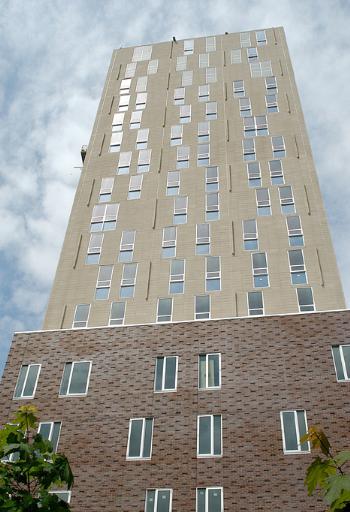A price tag of $75 million for a swath of riverside Boston real estate—the last major undeveloped site in the city—is a deal almost too good to be true.
For Harvard, which purchased the land last week after a harried series of negotiations, it was.
By early this week, area politicians were threatening legal action on the sale. Newspapers around the country buzzed about the possibility of Harvard crippling the area’s economy by relocating the area’s major railyard from the land, or even moving the section of turnpike that runs through it.
“The thing I was upset about was that there was no process the city was considered in,” Boston Mayor Thomas M. Menino said. “Harvard just said ‘we’re going to buy it.’ But there’s been no consideration. It was just, ‘let’s get the land, get the deal done.’”
The anger many area politicians expressed last week is reminiscent of the what is widely considered the nadir of Harvard’s relationship with Boston—the imbroglio surrounding Harvard’s 1997 announcement that it had secretly purchased nearly 50 acres of Boston land.
That land was an escape valve for a University badly cramped on this side of the river, unable to make use of holdings in Cambridge due to Byzantine building restrictions and a long history of bad relations with city politicians.
But for the small Allston community and the Boston officials keeping a pulse on their city’s economy, Harvard’s move smacked of invasion.
Menino accused Harvard of waging “a full-scale attack” on the city, as well as displaying “the highest level of arrogance seen in our city in many years.”
“That was a very messy affair,” remembers Paul S. Grogan, the former vice president of government and community affairs who arrived at Harvard shortly afterwards to help clean up the mess. “It exposed the fact that the University didn’t have the relationships in place.”
Grogan is referring to Harvard’s relations with city officials in downtown Boston or the community leaders of the formerly-industrial Allston neighborhood—people now considered essential partners to the University if its development dream, a new campus in Allston, is to come true.
A hired gun brought in to improve ties between Mass. Hall and Boston’s city hall, Grogan opened Harvard’s coffers to needy institutions in the city and kept Boston’s powerful mayor on speed dial.
After a short but revolutionary term, Grogan, Harvard’s Boston specialist, moved on in 2001. But now, Harvard’s relations with the beantown are more important than ever.
In the coming months, top University officials are expected to develop its plans for the new campus.
Then, negotiations over what by all accounts will be massive development expected redefine an entire Boston neighborhood will begin in earnest.
While Harvard has made inroads towards a good relationship with Menino and other area leaders, the battle over Harvard’s 91-acre purchase exposes major fault lines and old wounds in a still-touchy, ever-evolving town-gown bond.
Read more in News
Pataki: 'Yale is Going to Crush Harvard'













